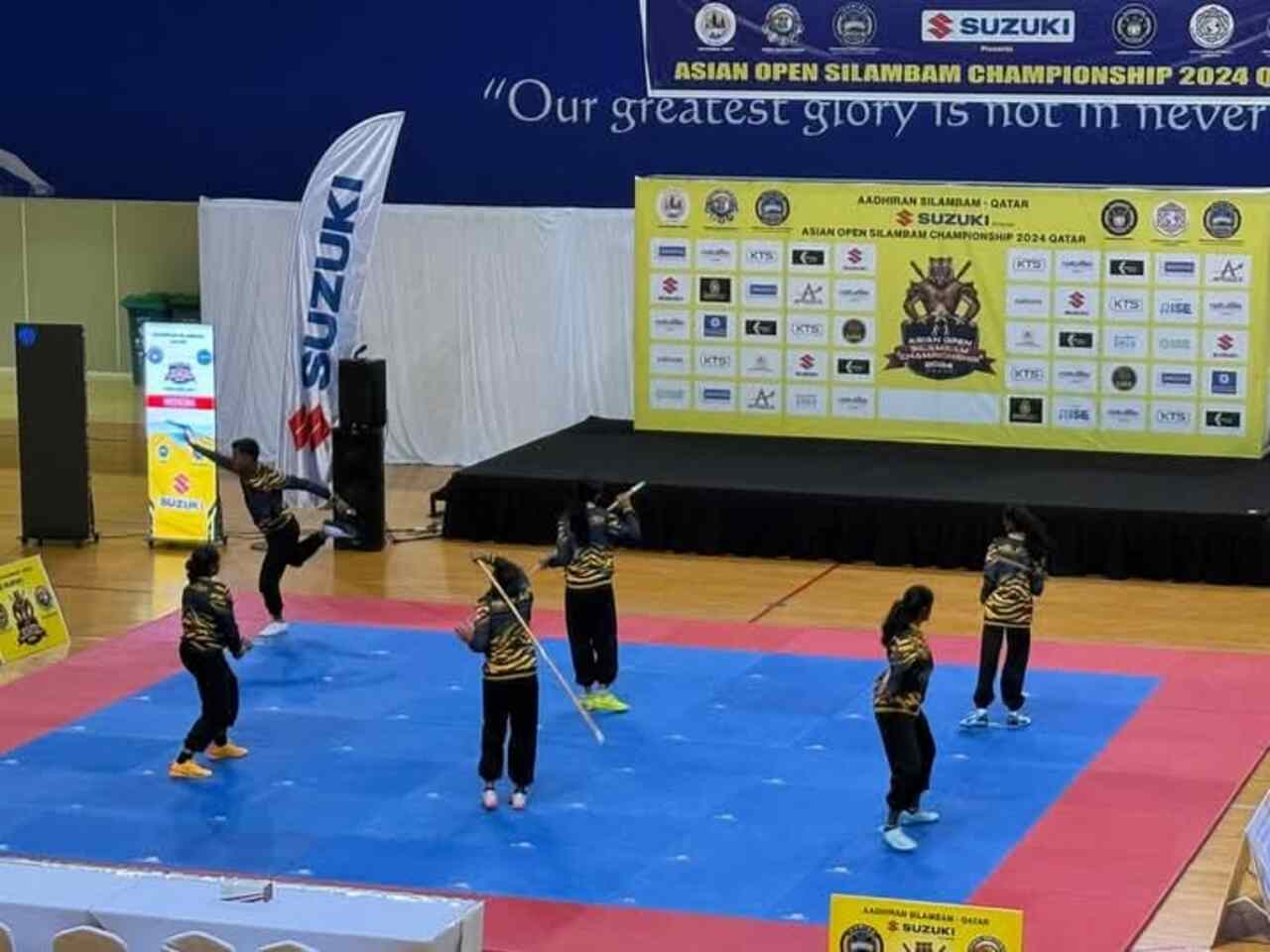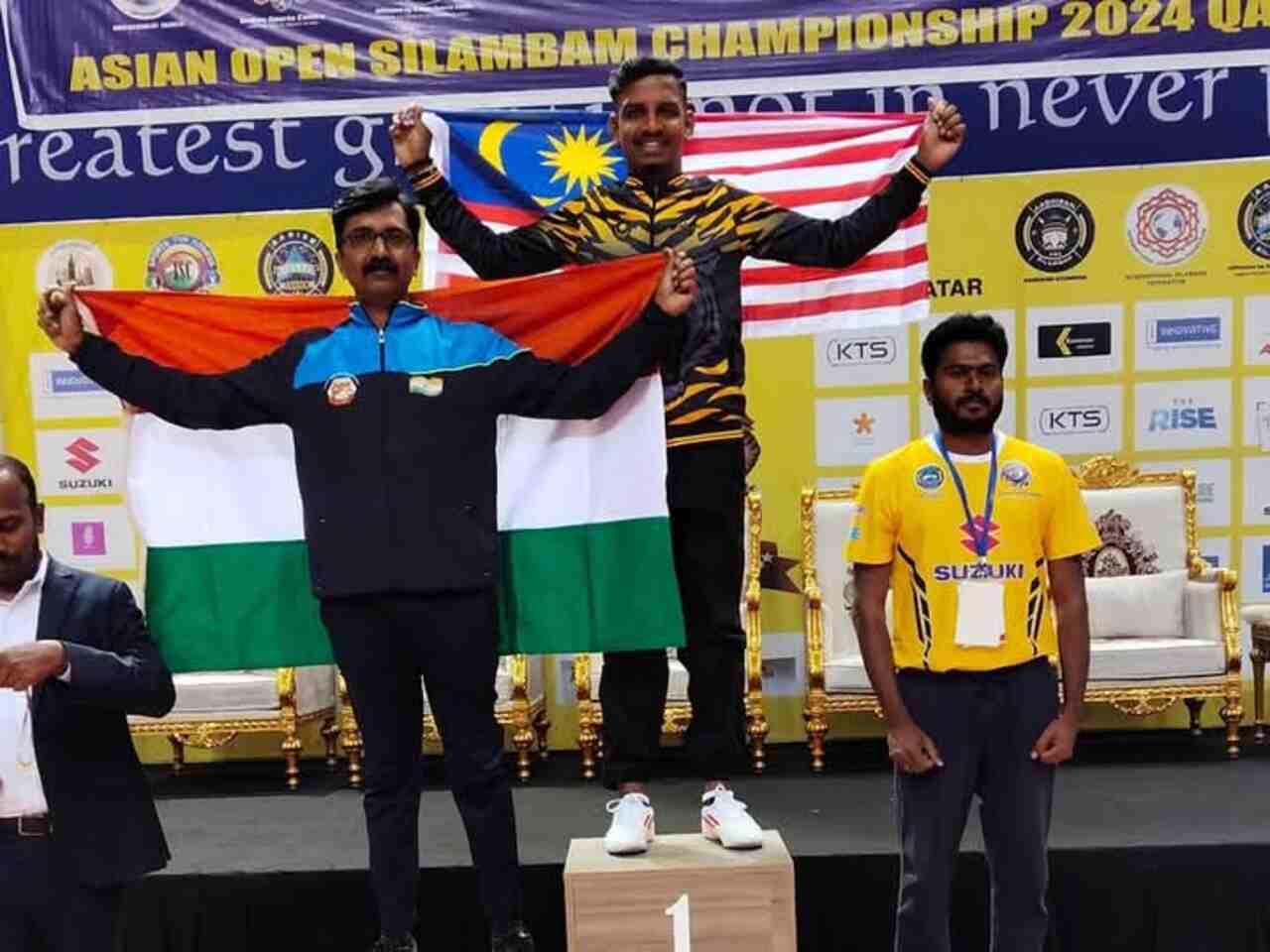The Malaysian silambam team made history by clinching 12 gold medals, emerging as overall champions at the Asian Open Silambam Championship in Qatar yesterday. The victory marked a significant milestone for Malaysia in this traditional Indian martial art, further solidifying its status as a global silambam powerhouse.
A Stellar Team Performance

Under the leadership of the Malaysia Silambam Association, six national athletes delivered an outstanding performance, each securing two gold medals. The victories spanned the ‘Thanithiramai’ (individual artistic staff spinning) and ‘Poruthal’ (combat) categories. Among the gold medalists were Prakash (Men’s Open above 60kg category), Shastivena (Girls’ Under-17, 55kg-65kg category), Leenasree (Girls’ Under-15, 30kg-40kg category), Kavithira (Girls’ Under-15, 45kg-55kg category), Darnisha (Girls’ Under-15, 55kg-65kg category), and Ranishaa (Girls’ Under-15, above 70kg category).
Dr. M. Suraess, President of the Malaysia Silambam Association, praised the athletes for their dedication and hard work. The team’s rigorous preparation and competitive spirit ensured they dominated the championship, surpassing strong opponents such as hosts Qatar and the United Arab Emirates, who finished second and third respectively.
Silambam’s Rise in Malaysia

Silambam, a traditional martial art originating from Tamil Nadu, India, has experienced a significant resurgence in Malaysia, symbolizing both cultural pride and athletic achievement. Widely popularized through Tamil cinema in the 1960s and 1970s, silambam’s intricate techniques and physical discipline have earned it growing recognition in the country.
The recent championship success follows the team’s medal-winning performances at the Sukma Games in Sarawak earlier this year. This consistency underscores the effectiveness of Malaysia’s silambam development programs, including grassroots initiatives and international training collaborations.
Elevating Malaysia’s Reputation Globally

Team Malaysia’s stellar execution at the championship showcased their mastery of the sport, impressing judges and audiences alike. Their achievements have placed Malaysia firmly on the international silambam map, inspiring young athletes nationwide to pursue excellence in traditional sports.
The victory also reflects the nation’s cultural diversity, highlighting how heritage can thrive in competitive sports. This achievement is expected to fuel further investments in silambam, ensuring the art form continues to flourish while fostering greater interest in Malaysia’s rich cultural traditions.
The team’s historic triumph is not just a celebration of their skills but a call to expand the sport’s reach. Officials are now focusing on nurturing young talents, enhancing training facilities, and strengthening international partnerships. These efforts aim to sustain Malaysia’s dominance in silambam while promoting the martial art as a unifying cultural symbol.











